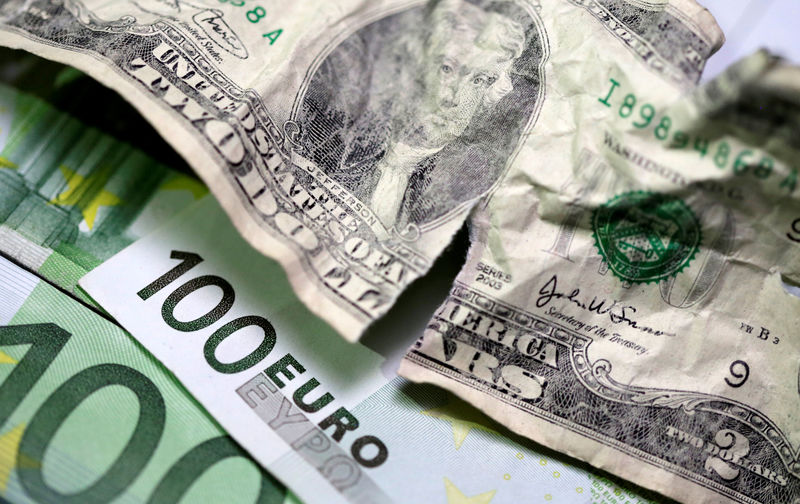Investing.com - The U.S. dollar slipped lower in early European trade Wednesday, in cautious trading ahead of congressional testimony from Federal Reserve Chair Jerome Powell which should provide more cues on U.S. monetary policy.
At 04:30 ET (09:30 GMT), the Dollar Index, which tracks the greenback against a basket of six other currencies, traded 0.2% lower at 103.602, after falling from three-month highs over the past two weeks.
Powell to appear before Congress
The dollar received a hit on Tuesday after data showed U.S. services industry growth eased in February, but losses are minor as investors await the start of Federal chief Powell’s two-day testimony in front of Congress.
Powell appears before a House committee on Wednesday, and a Senate panel on Thursday, and is expected to reiterate that policymakers will stick to a cautious approach in deciding when to begin lowering interest rates given persistent price pressures.
“We think Chair Powell may not be quite as hawkish as some think today and we see some downside risks to the dollar,” said analysts at ING, in a note.
That said, any losses are likely to be curtailed ahead of Friday’s keenly-awaited monthly jobs report.
Signs of continued strength in the labor market could make it harder for investors to shrug off concerns about how a stronger-than-expected economy could reignite inflation if the Fed begins easing too soon.
Euro boosted by German export growth
In Europe, EUR/USD traded 0.2% higher at 1.0873, with the euro helped by better than expected German trade data, raising hopes that the slowdown in the performance of the eurozone’s dominant economy may be coming to an end.
German exports rose more than expected at the start of the year, rigging 6.3% in January compared with the prior month, thanks to rising demand from European Union countries and China.
The ECB meets to set monetary policy on Thursday but is widely expected to leave interest rates at a record 4%.
“We think there are some downside risks to the euro from tomorrow's European Central Bank meeting,” said ING. “As such, should today's US event risk prove a dollar negative, we think EUR/USD will still struggle to sustain a break over 1.0900.”
GBP/USD traded 0.2% higher at 1.2728, ahead of the U.K. Spring Budget later in the session, with Chancellor Jeremy Hunt seemingly under pressure to cut taxes in an attempt to boost his party’s waning popularity ahead of a probable 2024 election.
However, the gilt turmoil of September 2022 remains fresh in the memory– when former Prime Minister Liz Truss and her then Chancellor Kwasi Kwarteng spooked the markets with promises of unfunded tax cuts–and thus Hunt may have limited scope for moves.
Yen edges higher, below Y150 level
In Asia, USD/JPY traded 0.2% lower to 149.81, with the yen firming slightly below the 150 level, helped by the dollar weakness.
The focus remains on when the Bank of Japan could potentially begin raising interest rates.
USD/CNY traded 0.1% higher at 7.1993, close to breaking above the 7.2 level with sentiment towards Asia’s largest economy remaining weak after the Chinese government set a 2024 gross domestic product target of 5%, the same as 2023, and offered scant cues on more policy support for the economy.
AUD/USD rose 0.2% to 0.6516 after data showed Australian fourth-quarter GDP grew as expected, showing that strong government and capital spending helped offset a sharp decline in personal consumption.
